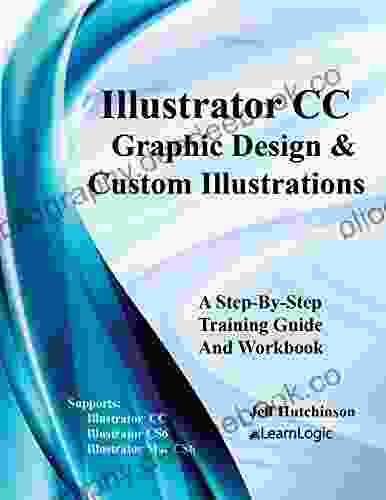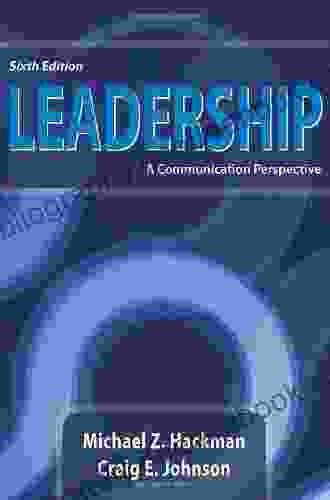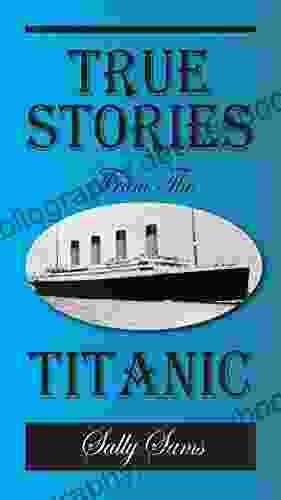Adapting Leadership Theories and Communications Techniques to the 21st Century: Embracing Innovation and Resilience

The 21st century has witnessed a paradigm shift in the global landscape. Technological advancements, globalization, and societal changes have created a dynamic and complex environment that demands adaptable leadership and innovative communications strategies. To navigate these challenges effectively, organizations must re-evaluate their leadership theories and communications techniques, embracing new approaches that empower leaders and align with the contemporary needs of employees, stakeholders, and the broader community.
Adapting Leadership Theories
Traditional leadership theories, rooted in hierarchical structures and unilateral decision-making, are no longer sufficient to meet the demands of the modern workplace. To adapt to the 21st century, organizations must embrace leadership theories that emphasize:
5 out of 5
| Language | : | English |
| File size | : | 4890 KB |
| Text-to-Speech | : | Enabled |
| Enhanced typesetting | : | Enabled |
| Word Wise | : | Enabled |
| Print length | : | 224 pages |
| Screen Reader | : | Supported |
1. Shared Leadership:
In a rapidly changing environment, organizations require leaders at all levels who can collaborate, share ideas, and collectively drive success. Shared leadership models foster teamwork, innovation, and adaptability.
2. Servant Leadership:
Servant leaders prioritize the needs of their followers, focusing on empowering, supporting, and developing their team members. This approach builds trust, loyalty, and a positive work environment.
3. Emotional Intelligence:
Leaders must possess emotional intelligence to understand the motivations, emotions, and perspectives of others. They can build strong relationships, communicate effectively, and navigate complex situations with empathy and diplomacy.
4. Cultural Competence:
In a globalized world, leaders need cultural competence to effectively interact with diverse individuals and teams. This includes understanding cultural norms, traditions, and communication styles.
5. Agile Leadership:
Organizations must embrace agile leadership to respond quickly to changing market conditions and customer demands. Agile leaders are flexible, responsive, and empower their teams to make timely decisions.
Evolving Communications Techniques
Effective communication is paramount for successful leadership. In the 21st century, organizations must adapt their communications techniques to ensure clarity, transparency, and engagement. Key strategies include:
1. Digital Communication:
Leveraging digital tools and platforms enables organizations to communicate seamlessly and efficiently with employees, stakeholders, and the public. Social media, video conferencing, and instant messaging facilitate real-time updates, collaboration, and information sharing.
2. Personalized Communication:
Communicating with employees and stakeholders as individuals, rather than a collective audience, fosters a sense of connection and relevance. Organizations can tailor messages, channels, and content to meet specific needs and interests.
3. Storytelling:
Stories have the power to connect with audiences on an emotional level. Leaders can leverage storytelling techniques to convey messages, inspire action, and build a sense of shared purpose.
4. Visual Communication:
Visuals, such as infographics, videos, and images, can enhance message clarity and engagement. They can simplify complex information, highlight key points, and appeal to a wide range of audiences.
5. Active Listening:
Active listening involves paying undivided attention, understanding perspectives, and responding with empathy. Leaders who practice active listening build trust, foster collaboration, and demonstrate a genuine concern for others.
Benefits of Adaptation
Adapting leadership theories and communications techniques to the 21st century has numerous benefits for organizations. These include:
1. Increased Innovation and Creativity:
Modern leadership theories and communications strategies empower employees to share ideas, collaborate, and challenge the status quo. This fosters a culture of innovation and creativity, leading to new products, services, and solutions.
2. Enhanced Organizational Agility:
Agile leadership and responsive communications techniques enable organizations to respond quickly to market changes and customer demands. This ensures competitive advantage and business resilience in an ever-evolving environment.
3. Improved Employee Engagement:
Leaders who embrace shared leadership, emotional intelligence, and personalized communication create a positive and supportive work environment. This leads to increased employee engagement, motivation, and productivity.
4. Stronger Stakeholder Relationships:
Transparent and effective communications build trust and credibility with stakeholders. Organizations that prioritize stakeholder engagement foster long-term relationships, reputation, and business success.
5. Increased Adaptability and Resilience:
In an uncertain and constantly changing world, adapting leadership theories and communications techniques is crucial for organizational survival and resilience. Organizations that embrace innovation and agility are better equipped to navigate challenges and thrive in the 21st century.
Adapting leadership theories and communications techniques to the 21st century is essential for organizations to succeed in the face of constant change and global interconnectedness. By embracing shared leadership, emotional intelligence, cultural competence, and agile leadership, organizations can empower their leaders to drive innovation, foster collaboration, and respond effectively to market demands.
Evolving communications strategies to include digital communication, personalized content, storytelling, visual communication, and active listening enables leaders to engage with employees, stakeholders, and the community more effectively. The benefits of adaptation include increased innovation, organizational agility, enhanced employee engagement, stronger stakeholder relationships, and greater adaptability and resilience.
To navigate the complexities of the 21st century, organizations must be willing to challenge conventional wisdom, embrace new approaches, and invest in the development of leaders and communicators who possess the skills and mindset necessary to thrive in an ever-evolving landscape.
5 out of 5
| Language | : | English |
| File size | : | 4890 KB |
| Text-to-Speech | : | Enabled |
| Enhanced typesetting | : | Enabled |
| Word Wise | : | Enabled |
| Print length | : | 224 pages |
| Screen Reader | : | Supported |
Do you want to contribute by writing guest posts on this blog?
Please contact us and send us a resume of previous articles that you have written.
 Novel
Novel Page
Page Chapter
Chapter Text
Text Story
Story Genre
Genre Reader
Reader Library
Library Paperback
Paperback Newspaper
Newspaper Sentence
Sentence Bookmark
Bookmark Glossary
Glossary Preface
Preface Annotation
Annotation Manuscript
Manuscript Scroll
Scroll Codex
Codex Tome
Tome Bestseller
Bestseller Classics
Classics Autobiography
Autobiography Memoir
Memoir Encyclopedia
Encyclopedia Thesaurus
Thesaurus Librarian
Librarian Borrowing
Borrowing Study
Study Research
Research Journals
Journals Reading Room
Reading Room Rare Books
Rare Books Special Collections
Special Collections Study Group
Study Group Thesis
Thesis Storytelling
Storytelling Awards
Awards Book Club
Book Club Theory
Theory Textbooks
Textbooks Hieu Minh Nguyen
Hieu Minh Nguyen Ralf Rothmann
Ralf Rothmann Scarlett Se Leva
Scarlett Se Leva Melvin A Taylor
Melvin A Taylor Blake Shelton
Blake Shelton Robert Pelberg
Robert Pelberg Barry Bozeman
Barry Bozeman Kalyn Cooper
Kalyn Cooper Susan Blumenthal
Susan Blumenthal Anita Sanchez
Anita Sanchez Tony Konieczny
Tony Konieczny Shirley Rousseau Murphy
Shirley Rousseau Murphy Nic Hooper
Nic Hooper Francesca T Royster
Francesca T Royster Lisa Jacobs
Lisa Jacobs Nathan George
Nathan George Brian Ward
Brian Ward Joshua Kjerulf Dubrow
Joshua Kjerulf Dubrow J D Harelik
J D Harelik Kim Addonizio
Kim Addonizio
Light bulbAdvertise smarter! Our strategic ad space ensures maximum exposure. Reserve your spot today!

 Ernest ClineTanka Poems of Love and Loss for Dog Lovers: A Poetic Tribute to Our Furry...
Ernest ClineTanka Poems of Love and Loss for Dog Lovers: A Poetic Tribute to Our Furry...
 Jason HayesAdobe Illustrator CC Graphic Design Custom Illustrations Level: Unleash Your...
Jason HayesAdobe Illustrator CC Graphic Design Custom Illustrations Level: Unleash Your... Jaime MitchellFollow ·13.7k
Jaime MitchellFollow ·13.7k John GrishamFollow ·10.4k
John GrishamFollow ·10.4k Edgar CoxFollow ·9.8k
Edgar CoxFollow ·9.8k Theo CoxFollow ·12.2k
Theo CoxFollow ·12.2k Brian BellFollow ·3.2k
Brian BellFollow ·3.2k Richard AdamsFollow ·18k
Richard AdamsFollow ·18k Ron BlairFollow ·16.2k
Ron BlairFollow ·16.2k Elliott CarterFollow ·7.5k
Elliott CarterFollow ·7.5k

 Braden Ward
Braden WardFeminism's Forgotten Fight: The Ongoing Battle for...
The feminist movement has historically...

 Julio Cortázar
Julio CortázarBlue Heaven Black Night: A Literary Journey Through Love,...
In the realm of...

 Eddie Bell
Eddie BellA Journey Through Time: Exploring the Enchanting World of...
The vibrant tapestry of New...

 Lawrence Bell
Lawrence BellValiance Dragon Soul Press Anthology: A Literary Odyssey...
Step into a realm where...

 Aron Cox
Aron CoxEmbark on a Creative Odyssey with Jean Leinhauser's "101...
Unveil a Kaleidoscope of...
5 out of 5
| Language | : | English |
| File size | : | 4890 KB |
| Text-to-Speech | : | Enabled |
| Enhanced typesetting | : | Enabled |
| Word Wise | : | Enabled |
| Print length | : | 224 pages |
| Screen Reader | : | Supported |










